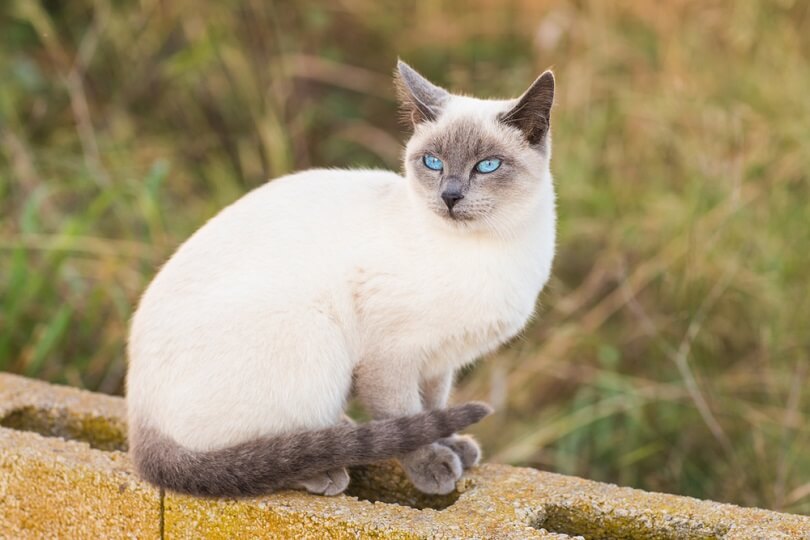Keeping your home clean and sterilized is at the top of most job lists, and understanding which cleaners are suitable for dogs and cats is essential knowledge for pet owners.
Table of Contents
1. Can disinfectant harm cats

The most simple and basic answer is yes!
Your cat would face severe repercussions if they ingest, touch, or inhale dangerous and poisonous cleaning products.
If they accidentally ingest some chemicals, your cat may have stomach distress, diarrhea, vomiting, seizures, difficulty breathing, chemical burns, and skin irritations.
Cats’ mouths are always used to chew and lick anything from shoes to floors to cloth. As a result, avoid cleaning solutions containing dangerous substances whenever feasible and always follow the manufacturer’s instructions.
Never use a household cleaner or disinfectant on a pet to be safe.
The chemicals listed below are known to be included in most disinfectants and should be avoided!
- Isopropyl Alcohol: Also known as rubbing alcohol, this is the active ingredient in hand sanitizer. Do not allow your cat to ingest or drink this, especially since this is colorless and highly resembles water.
- Bleach: Bleach is a typical household cleaner used alone or in combination with other ingredients.
- Non-Chlorine or “Color-Safe” Bleach: Although less hazardous than ordinary bleach, this product often contains hydrogen peroxide, which can cause vomiting.
- Alkyl dimethyl benzyl ammonium chloride (BACS): A widely used disinfectant. It’s also the primary ingredient in most store-brand and name-brand disinfecting wipes and sprays.
- Phenol: This organic chemical component is used in various disinfection wipes, sprays, and floor cleaners. Some cleaning products with the word “sol” in their name contain phenol, but not all.
- Ammonia: This industrial chemical is found in many domestic cleaning products such as floor cleaners, windows cleaners, oven cleaners, toilet cleaners, drain cleaners, bathroom cleaners, stainless steel cleaners, and multi-surface cleaners.
- Essential Oils: Avoid using pure, undiluted essential oils in a home with pets, especially cats. When consumed or inhaled, most essential oils are poisonous.
Disinfecting your home will always be needed, so if you are concerned about how it may impact your dogs, keep them out of that room for a few hours until the chemicals dry.
2. What disinfectant is safe for cats

Fortunately, some disinfectants are certified safe for cats. While these cat disinfectants are relatively safe, you must monitor your cat cautiously. Follow the label instructions to ensure their safety, and as much as possible, do not allow your cats to ingest them to avoid unexpected complications. You can never be too careful about your pet and pet-safe disinfectants.
With that said, here are three pet-safe disinfectants for cats.
Veterinary disinfectants come in at number one on the list. These items are utilized in veterinary clinics, as well as in catteries and animal shelters. You can purchase some of them online, at your local veterinary clinic, or the pet store in your neighborhood.
Some examples of veterinary disinfectants are Virkon and Trifectant, Accel, Trigene, and Parvosol. F10 Veterinary Disinfectant is another option. When utilizing these disinfectants, you must always follow the directions provided by the manufacturer on the product labels.
Next on the list is ethanol. The use of ethanol is another option that may be taken into consideration while dealing with cats. One minute use of 70 to 90 percent concentration is required to complete the task. On the other hand, higher concentrations produce better results. It is important to remember to let it dry completely before allowing cats to access the treated area.
The utilization of heat and steam in the cleaning process comes in at number three on the list.
One of the most effective means of disinfection is heat. In particular, heat that is combined with moisture and pressure. Surfaces, floors, and soft furniture can be cleaned with steam. When it comes to destroying germs with heat, the temperature and the amount of exposure time are crucial factors.
Temperatures should reach between 121°C (250°F) and 132°C (270°F), and washing machines should be set to at least 60°C. Upholstered items should be cleaned with steam.
3. Can I spray disinfectant on my cat

No! Don’t spray disinfectant on your cat.
While Consumers’ cleaning products and disinfectants can eradicate the virus that causes COVID-19, they can also sicken or kill cats.
Experts believe that cleaners with strong odors that promise results should alert pet owners, particularly cat owners, to the hazard.
Alcohol, bleach, hydrogen peroxide, chemical compounds such as “phenol,” and other chemicals that make disinfectants efficient are hazardous to companion animals.
Whenever you clean a room, make sure no animals are in it. It is dangerous to leave disinfectants and medications for the common cold and flu unattended.
Place them somewhere your pets won’t be able to access until you’ve finished using them. If you clean your floors or countertops with disinfectants or cleaners, you should keep your pets away from those areas until they are dry. To get the best results, you should rinse your tiles with water.
Cats are vulnerable because they are small animals; their bodies cannot control poisons as effectively as other animals’ bodies do because they lack specialized liver enzymes and constantly lick their fur.
Cats are also naturally curious, as evidenced by the fact that they will venture into places that appear out of their reach and investigate new objects using their nose or paws.
They can inhale pollutants, which may harm their health and well-being if you spray them with disinfectant. Continuous exposure to this, mainly through the air, can cause severe respiratory and skin difficulties. Your cat may develop liver problems as a result of this over time.
As cat owners, we must be sensitive to what we expose our cats. Spraying them with disinfectant may seem at first to be a pretty common thing to do. We want them to be clean instantly, and disinfectant spray gives us the idea that those sprayed are instantaneously cleaned.
Unfortunately, not only do they not clean pets immediately, they are actually harmful to them. Refrain from spraying your cat and instead give them an excellent and thorough bath to ensure that they’re clean and disinfected.
4. What is a good disinfectant for cat wounds
There are several disinfectants available for use on pet wounds. Povidone-iodine and chlorhexidine are the most commonly used. If you want one of these products on hand, consult your veterinarian if your cat gets scratched.
To remove any crusted discharge and maintain the wound margins clean, clean the wound two or three times each day with warm water and a mild antiseptic solution.
Unless otherwise directed by your veterinarian, DO NOT use soaps, shampoos, rubbing alcohol, hydrogen peroxide, herbal remedies, tea tree oil, or any other substance to clean an open wound.
To use povidone-iodine, dilute it by combining 1 ml with 100 ml of water. Use this solution to remove contaminants from the wound’s surface.
Another wound-cleaning disinfectant is chlorhexidine. To use it, combine 2.5ml of chlorhexidine with 100ml of water to make the appropriate strength for cleaning a wound. Many surgical scrubs, including Hibiscrub, contain chlorhexidine as an active ingredient. It’s a pink soapy solution that should be diluted with water.
Chlorhexidine has good antibacterial capabilities and a modest residual activity, which means it continues to kill bacteria after it has dried.
Hydrogen peroxide is another popular wound cleanser. However, if administered undiluted, this can be highly destructive to tissue. The popular myth is that the fizzing as the peroxide meets the wounds kills the bacteria. Unfortunately, in reality, it also damages the tissue bed, which is required for future healing.
To prepare a disinfectant solution suited for cleansing wounds, use a 3% hydrogen peroxide solution and dilute it by one part peroxide to three parts water (for example, 25 ml peroxide to 75 ml water).
Always follow your veterinarian’s instructions when caring for your cat’s wound. Choose pet-safe cat disinfectant to ensure your cat is not exposed to harmful chemicals. This will give you great peace of mind knowing that your cat is not in danger of having its wounds infected.
5. Homemade cat-safe disinfectant
Natural items used as cat disinfectant can be available in the home. White vinegar, for example, is excellent for cleaning kitchen countertops where food is cooked.
Unfortunately, most natural and home cleaners are ineffective at killing harmful bacteria. These home disinfectants won’t be able to handle situations like full decontamination in an environment like a shelter, veterinary surgery, or cleaning litter trays. But it can definitely handle basic home cleaning.
Despite this, using this homemade cat-safe disinfectant when cleaning your home might give you peace of mind that it will not severely harm your cats. And for many of us, that’s a tremendous gain, especially if we want the house clean without worrying about the disinfectants harming our cats. Here are some household disinfectants to consider:
Hydrogen Peroxide (6-7%) – With so many applications, hydrogen peroxide (6-7%) is a must-have in the house. I’m not sure I’d use it if there were a significant disease outbreak. Still, it appears that among natural disinfectants, hydrogen peroxide has antimicrobial activity against a variety of pathogens.
- White Vinegar: While acetic acid (domestic vinegar) can operate with various bacteria, there is less data on its efficiency against viruses, particularly those that harm cats.
- Dish Soap – This tried-and-true cleanser cleans without harming pets. However, do not clean your pet with dish soap because it may irritate their skin.
- Citric Acid: Another excellent natural household cleaner, citric acid can reduce Listeria monocytogenes but is ineffective against most harmful organisms.
- Sodium Bicarbonate: This is a chemical that is both safe and inexpensive. Sodium bicarbonate inactivates feline calicivirus but is relatively ineffective against E. coli and Salmonella.
Ultimately, please consult your veterinarian on keeping your cats safe from cleaners and disinfectants. Your cat may look tough on the outside, but they’re really vulnerable animals. Be mindful of the chemicals you expose them to. Create a system where the cat is not in the room when you’re disinfecting it, and train them to cooperate. This will save you many headaches in the future.





